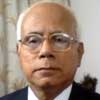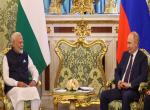Sixty year-old, Ursula von der Leyen, the German defense minister, has been nominated by the national governments of the European Union (EU) to be president of the European Commission (EC). If the nomination is approved by EU Parliament, Leyen will become the first woman president of the EU Commission in its existence of more than 60 years. Leyen has had a chequered track record as Germany`s defence minister, in which she has been in overall and effective control of her country`s defence policy and programmes. The work as EC president will involve setting the EU`s policy agenda, proposing legislation, upholding EU treaties, and managing and executing concomitant policies and programmes through the EU commissioners, 33000 officials, staff and special advisers, requiring a wide array of political skills and ability to evolve a consensus. Taking the Brexit process to consummation, will be a special challenge before her.
It is expected that Ursula von der Leyen will be able to obtain the requisite majority in the European Parliament, for her confirmation as the EU commission president. However, there are opposition to her from the European Green parties despite her commitment to the international goals of climate change and EU as a carbon neutral body by 2050, but she is likely to obtain the confirmation. Leyen`s strength lies in the backing she has from German chancellor Angela Merkel and the Christian Democratic Union (CDU) governing party in her country and the CDU members of EU Parliament, supporters of Franco-German entente within the EU, and also fringe support of leaders like Irish premier Leo Varadkar who have hailed her nomination as a strong message for gender equality. There is a good measure of support for Leyen from the eastern European member states of the EU also.
Challenges before Leyen will be multifarious. Managing the Brexit process will be a test of her skills. She has indicated that, she would be happy with UK as a part of the EU, but if Brexit is to be gone through, tinkering with the deal already arrived at with Britain`s Teresa May government, including the Irish backstop (retention of the existing open border between Ireland and Northern Ireland), may not be acceptable. Though Leyen is generally regarded as a conservative Europhile and has the centrality of the EU in the management of Europe`s defence and security matters as well in regard to trade and issues like climate change, she is expected to be flexible in dealing with contentious issues without compromising on fundamentals. Leyen may not adopt a hard-line approach to Russia, though she would not give in to Russia`s meddling with east European members of the EU. These traits have been evident during her tenure as German defence minister since 2013.
The EU, with Jean Paul Juncker as EC President during (2014-19), had given a political orientation to the working of the Commission. Viewed in the context of democratic states, the EC is akin to a political executive or council of ministers which executes and oversees administrative actions ensuing from its decisions. However, within EU`s institutional framework, the EC is more an arm to evolve a political consensus, give a lead in evolving legislation, and above all, derives its political support from the EU Parliament, members of which may not always be in sync with the policies of their respective governments. Perhaps there was a justification or necessity for the change Juncker had brought about, given the lack of consensus on many issues among the EU member states, and also lack of articulation of a cohesive approach on such matters from within the EU Parliament. It is to be seen whether Ursula von der Leyen carries forward such an approach, or has the inclination and ability to do so. The most crucial matters will concern stability of the Eurozone – which she should be able to attempt successfully with Christian Laggard (former managing director of IMF) as the head of the European Central Bank - and strengthening the open border regime in Schengen area. There is a proposal for having a common budget for the EU countries or at least in the Eurozone (four EU countries are not part of the Eurozone).
The other priority issues on the table for her will be the instituting of an unified fiscal system within the EU, which will be resisted by quite a few EU member states` governments for short-term gains. With uniform taxation proposals the taxes may not be harmonious to revenue generating capacity of all the countries. For some, the tax rates may be alright, for others they may be harsh, because economic conditions are not uniform. Countries hit by the uniform tax rates will request for greater devolution of the proceeds to them, in higher proportion to their contribution to the common pool. From the common revenue pool generated through centralized budgeting and approval of EU parliament, a portion could be judiciously earmarked for refugee rehabilitation. This will be another contentious issue. Another fundamental aspect is the respective countries will lose their legislative competence to raise revenue. This may be a positive move towards supra-nationalism, but would definitely erode the national legislative competence of the states. However, a step-by-step approach, may be a via-media and politically prudent.
An area on which Leyen as the next EC president, is likely to move forward is the augmentation of defence capacity of the EU member states. As German defence minister, she had opined as such, with a view to reducing dependency on the USA. Such an approach will find favour with most of the EU member states. The only problem will be to integrate the entire military resources of the EU states with that of NATO and place them in entirety under a common management structure in which the EU member governments have a greater control. Such an evolution may not be easy because the USA, while demanding additional financial commitment from NATO governments, may not be agreeable to any modification of the NATO command structure which would erode its position as a primary decision making country within this military alliance.
There is a dichotomy between EU and NATO. While the former is a political-cum–economic union, the latter is a military alliance developed originally to thwart the Warsaw Pact of the Cold War period from military adventurism in Central and Western Europe. With the alteration of the international scenario and the political configuration of the former Soviet Bloc east European countries – some presently members of EU and NATO - it may be appropriate to bring about synergy in capacity building and outcome between the EU and the NATO. If Ursula von der Leyen can achieve this, it will be a landmark achievement.
Two issues which Leyen will have to contend with from the very beginning concern the ingress of refugees to Europe from the Middle East and Africa, and the US-Iran crisis building up over Teheran`s recent decision to ignore the limits on enrichment of nuclear fuel and stockpiling, under the Joint Comprehensive Plan of Action (JCPOA) concluded in July 2015 among the five UN Security Council permanent member states and Germany and Iran. On the refugee issue, the EC will have to give a lead in coaxing or inducing the EU member states towards adopting policies which ameliorate the refugees` conditions both in the short term and on a long-term profile. This will not be easy. In the recent past, a right-wing and to an extent xenophobic wave has been evident in Central and Eastern European countries. If the EC lead by Leyen can bring about some moderation in this regard to justify the common fiscal mechanism being attempted by organizing and earmarking resources equitably among the EU members for deployment on such humanitarian needs – i.e., on refugee rehabilitation and employment generation without upsetting existing social balances in the rehabilitation zones, and to the common welfare within the region - it will be progressive measure to the credit of the in-coming EC president.
Though the EU or the EC are not technically concerned with the execution of the JCPOA, the two most important countries of EU in the strategic sense, Germany and France, are involved. While it appeared in the beginning - i.e. from 2018 onwards when the Trumph administration started to declare its resolve to withdraw from the JCPOA ambit - that these two EU member states favour adherence to the agreement, subsequently, under US pressure, the EU and EC president seemed to have abdicated their independent approach in the matter. The desperation of Teheran to the US sanctions re-imposed after US withdrawal from JCPOA has resulted in the brewing of the crisis of strategic dimension consequent on the Iran`s higher enrichment and stockpile breeching decisions. If Leyen and the new EU foreign affairs commissioner, with support of German Chancellor Merkel and French President Macron, can induce a moderating posture from Iran not to push further ahead with the nuclear fuel enrichment and stockpiling, and obtain a commitment from US to abjure direct military action against Iran, that will be a significant achievement. A sine qua non for the purpose is the developing of a political will on the part of EU to demand from the Trump administration, a downscaling of the sanctions regime put in place by Washington against Teheran, so that some trade in essentials, e.g. medical items, consumer goods, etc, can resume between EU countries and Iran.
The initial few months of Leyen as EC president, will be quite testing. Issues impinging on internal cohesiveness and ambit of the EU and Brexit will keep her preoccupied. However, matters of strategic import will also loom large before her.
(The author is a retired IDAS officer who has served in senior appointments with Government of India and some State Governments)
Image Source: https://mwi-ag.com/wp-content/uploads/2017/12/European-Commission-Logo.png











Post new comment